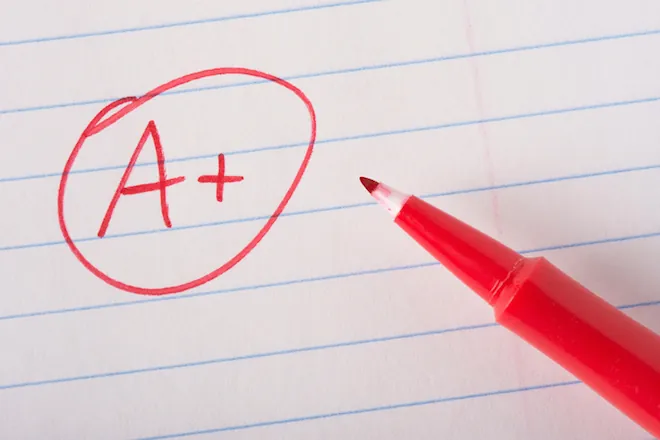
One of the best ways to cut past gaudy marketing brochures and startup-esque websites many universities throw in the faces of high school students and their parents is to get it straight from recent grads. Candid opinions from alumni — both positive and negative — often hold more value than nearly any other piece of data available for college decision makers.
 As part of our ranking of the Best Undergraduate Business Schools, we asked members of the Class of 2015 to rate their schools on a one-to-ten scale on 15 different prompts, with ten being the most positive and one being a bottom score. Breaking down the responses for each question is the key to learning about the specific strengths and weaknesses of each participating school. Some schools boast strong alumni networks. Others have incredibly accessible faculty. And still others specialize in providing important extra-curricular and curricular options that help their alums years after they leave the safety of the classroom.
As part of our ranking of the Best Undergraduate Business Schools, we asked members of the Class of 2015 to rate their schools on a one-to-ten scale on 15 different prompts, with ten being the most positive and one being a bottom score. Breaking down the responses for each question is the key to learning about the specific strengths and weaknesses of each participating school. Some schools boast strong alumni networks. Others have incredibly accessible faculty. And still others specialize in providing important extra-curricular and curricular options that help their alums years after they leave the safety of the classroom.
After chatting with multiple B-school deans and administrators, we decided two years after graduation was the best time to survey alums. That time period gives graduates ample time to drive-test the educational experience and alumni network but is not too far out so graduates would have a tough time remembering specific experiences. Overall, no school scored better than the University of Virginia’s McIntire School of Commerce, which had an average of 9.37 over the 15 questions. Up next was the University of Pennsylvania’s Wharton School of Business, which notched a 9.32. The University of Notre Dame’s Mendoza College of Business and Indiana University’s Kelley School of Business each tied for third place with 9.31. Rounding out the top five was Georgetown University’s McDonough School of Business which scored 9.16.
MANY STRENGTHS AND WEAKNESSES FOR INDIVIDUAL SCHOOLS
Of the 82 schools that submitted alumni contact info or surveyed their alums themselves, 19 had an average of at least nine on the one-to-ten scale. Only 13 scored less than eight. How to interpret those findings? Fact is, you can’t really go wrong at any of these schools. They represent the top 15% of accredited business schools and all provide solid and unique experiences. We encourage you to take a look through all the questions, scores, and grades to gain a full understanding of which schools succeed in different categories.
Take the University of Illinois-Champaign. Illinois scores a 9.20, which is good enough for third and .02 from New York University Stern School of Business’s 9.22 top score, on the following question: “How well did the extra-curricular opportunities offered to you in the business program nurture and improve your skills in business?” But for “How would you rate the quality of teaching in business courses?” Illinois scored 8.68, or 47th out of 82 schools.
Or consider Santa Clara University University’s Leavey School. Leavey scored 9.41 — second only to Wharton’s 9.43 — for the prompt, “Do you believe your business degree will assist you in climbing to a new socioeconomic status?” But the school only scores an 8.24 — good enough for 46th place — for “How would you appraise the effectiveness of the business program’s academic advising?”
In all, the data includes aggregated insights from nearly 7,000 recent graduates. We assigned grades based on the average scores for each category. An average score of 9.5 to 10 earned an A+, a 9.0 to 9.49 earned an A, an 8.5 to 8.99 earned a B+, and so on.
The closest we get to a “net promoter” score is in the question, “Would you recommend the business program to a close friend or colleague?” The highest score on this prompt was a 9.87 from alumni of Indiana University’s Kelley School of Business. In fact, that was the single highest score for any of the 15 questions used to rank the alumni portion of our ranking. The lowest was St. Louis University’s 6.14 average for “How accessible and willing were the school’s alumni in helping you connect with potential employers?”
While some schools earned “D” and “D+” grades, it’s important to know that these are all some of the best B-schools in the country and only the very best were invited to participate. The average score for all schools and all questions was 8.55, which suggests an incredibly high level of satisfaction on the one-to-ten scale.
Click the below links for scores, grades, and analysis for each question.
Would you recommend the business program to a close friend?
Evaluate how well the business program prepared you for the world of work.
Do you believe your business degree was worth its cost in time and tuition?
How would you rate the quality of teaching in business courses?
Were business school faculty available for informal discussions and mentoring outside of class?
How would you appraise the effectiveness of the business program’s academic advising?
How would you appraise the effectiveness of the business program’s career advising?
How accessible and willing were the school’s alumni in helping you connect with potential employers?
Was your business school experience life-changing?
Do you believe your business degree will assist you in climbing to a new socioeconomic status?
How instrumental do you believe your business degree will e in reaching your dream career?











Questions about this article? Email us or leave a comment below.